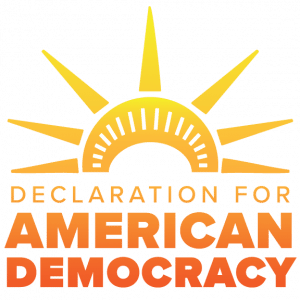This Week in 200 Words
This week in state updates, Pennsylvania House Democrats are sponsoring a state-level HR1-like bill package called “For the People”, which contains proposals to strengthen campaign finance reform, voting rights, and voter turnout. Voters in Alaska have succeeded in getting a ranked-choice voting initiative on the ballot in November. Wyoming lawmakers approved a bill to require recognition of tribal IDs for voter registration, helping ensure Native Americans won’t be disenfranchised. The Baltimore City Council is considering using energy tax money to fund a public campaign finance system. Meanwhile, campaign contributions from Ohio energy and utility companies are paying off.
In other news, Congressional Democrats, activists and others came together this week to highlight the 1-year anniversary of HR1’s house passage and call for a vote on the bill in the Senate. And Trump’s new pick for FEC commissioner, Trey Trainor, has come under scrutiny for his history of defending dark money.
National News
OpenSecrets – Trump FEC pick offers mixed messages on donor disclosure
Trey Trainor, President Donald Trump’s Republican nominee to the Federal Election Commission, tried to quell concerns from Democrats and some good government groups Tuesday that he would avoid enforcing campaign finance law if confirmed.
During his nomination hearing, Trainor said he believes political donors should be disclosed despite his past support for secret election spending. The Texas lawyer vigorously defended a “dark money” group from state regulators and previously invoked the Federalist Papers to defend undisclosed political spending.
Trainor followed that statement by indicating he would abide by the FEC’s current system of tackling undisclosed election spending. He told senators the commission has a “disclosure regime in place for donors to nonprofit organizations that may engage in independent expenditures.” That doesn’t tell the whole story.
[…] “The fight for the ballot, democracy, the fundamentals of that. So again, because of what is in our Constitution and what people have risked their lives for, some have lost their lives, we have an obligation in this Congress to make sure that policy exists that empowers the people. Again, to weaken the stranglehold of special interest dark money and instead of it being for special interests, it’s for the people’s interest.
So I thank all of our distinguished colleagues, House and Senate, for their leadership on all of this and their presence here today. And I thank all of you, outside, whose mobilization made all of this possible. We are not going to give up until we get the job done and pass H.R. 1, For The People.”
State Updates
Ohio – Energy News Network – Campaign contributions pay off for Ohio utilities and coal interests
Utility, nuclear and coal interests are big players in Ohio politics, giving about $3 million to Ohio political campaigns in 2018, according to data from the National Institute on Money in Politics.
The industry interests have long been active politically. But just as competitive markets began coming into their own around 2010, the pattern of campaign contributions also shifted.
Donations to Ohio campaigns from the utility, nuclear and coal industries in 2010 were more than double the amount for 2008. Election cycles after 2010 saw a gradual drop-off in recorded donations, followed by a smaller bump in 2018. That doesn’t necessarily mean the industries’ total spending went down, however.
“Lots and lots of things changed simply because of Citizens United,” explained Catherine Turcer, executive director of the government watchdog group Common Cause Ohio. In that 2010 case, the U.S. Supreme Court held that corporations have a constitutional right to spend for political advertising.
Maryland – Baltimore Sun – Baltimore City Council to consider using energy tax money for public campaign financing, gives approval to security camera rebate
The Baltimore City Council will consider devoting money generated by the energy tax to the public financing of political campaigns.
Councilman Kristerfer Burnett introduced legislation Monday night that would require the city to dedicate $2.5 million to the Fair Election Fund by earmarking energy tax revenue that currently flows into the city’s general fund. It would not raise the tax.
“If we’re going to restore trust in local government, we have to take the influence of big donors out of the equation and make sure that people with great ideas are the folks who are winning elections in Baltimore, not folks who have access to the most capital,” Burnett said. “This is the final step to bringing fair elections to Baltimore City: Funding the fund.”
The Fair Election Fund, approved by voters via referendum in 2018, aims to limit big money’s influence in Baltimore politics by providing matching funds to qualified candidates for mayor, city council and comptroller who pledge to refuse contributions from corporations and PACS.
Candidates who tap into the fund also must forgo contributions larger than $150.
Pennsylvania – Erie News Now – PA House Dems Highlight Voting, Campaign Reform Proposals
Late last year, Pennsylvania lawmakers passed the biggest election reform in state history in more than 80 years. But some Democrats say the job still isn’t done, and more reform is needed.
Several Democratic state Representatives are sponsoring Bills in a legislative package being called the “For The People” Plan. There are nine pieces of legislation included in this package that touches mostly on voter access to elections and campaign finance reform.
“It doesn’t matter who you are or where you’re from, people have had enough of big money speaking louder than the people when it comes to elections,” says House Minority Leader Frank Dermody (D-Allegheny).
Leader Dermody has introduced a campaign finance reform Bill that would put hard caps on how much campaign contributions can be. […] Another Bill in the package would bring early voting to Pennsylvania. […] Several proposals focus on easier voter registration. Recently passed laws allow voters to register up to 15 days before an election. But one state Representative from Erie wants voters to still be able to register on election day. Rep. Ryan Bizzarro (D-Erie) is sponsoring HB101, the Same-Day Voter Registration Bill.
“No one should be turned down their right to vote when they’re getting to the polls. I have a safe, effective plan in order to increase voter participation here in Pennsylvania,” says Rep. Bizzarro.
Two other Bills would automatically register voters when they utilize state services through Departments like PennDOT, Human Services, or Military and Veterans Affairs unless they opt-out. House Bills 306 and 1556 are sponsored by Reps. Ed Gainey and Sara Innamorato, both from Allegheny County. […]
Several other Bills are included in the “For The People” plan. HB704 from Rep. Brandon Markosek (D-Allegheny) would pre-register 16 and 17-year olds in high schools across the state. He says this would allow for easy official registration when they turn 18.
HB401, a Bill sponsored by Rep. Mary Jo Daley from Montgomery County, calls for Independent Redistricting.
HB1953, a Bill from Rep. Kevin Boyle (D- Philadelphia) would provide a 600% public match for qualified small-dollar campaign contributions for candidates running for office. Small-dollar contributions would include anything less than $200.
Finally, HB2262 by Rep. Melissa Shusterman (D- Chester, Montgomery) would implement a lifetime lobbying ban for elected public officials, and increase the waiting period for public employees from one year to two years.
When asked where House GOP Leadership stands on this package of legislation, spokesperson Mike Straub replied: 2020 is set to be the most accessible and fair election year in Pennsylvania’s history thanks to the election reforms enacted last year. We are currently working on additional updates to address concerns raised by county election offices regarding increased absentee ballots. Any additional updates to election laws will only come after working with the department of state, county election officials and lawmakers from both chambers and all parties agreeing on policies that increase security, fairness, and accuracy in every election in Pennsylvania, just as we did to pass last year’s historic election reforms.
All nine of these proposals are sitting in the House State Government Committee awaiting further action.
Wyoming – Wyoming Public Radio – Senate Passes Bill To Allow Tribal IDs For Voter Registration
County Clerks in Wyoming could soon be required by state law to accept tribal ID cards for voter registration, provided the ID lists the applicant’s driver’s license number or last four digits of their social security number.
The legislature’s Select Committee on Tribal Relations began drafting a bill to that affect last summer after an investigation found that poll workers in Fremont County were confused about whether or not they could accept tribal IDs to register voters for the 2018 midterm election. The senate passed the final version of that bill unanimously and without debate on Tuesday.
Alaska – Anchorage Daily News – Election reform ballot measure clears signature hurdle as Alaska lawmakers voice skepticism
The Alaska Division of Elections said late Monday that a ballot measure seeking to install ranked-choice voting in Alaska has collected enough signatures to appear before voters this fall.
In a hearing Tuesday morning, several state lawmakers said they are skeptical of the proposal.
Senate President Cathy Giessel, R-Anchorage, said she worries the plan could confuse and thus disenfranchise older voters.
“My concern is that the people who will be most likely disenfranchised will be the elderly who have most likely … always voted the normal way,” she said.
Shea Siegert, campaign manager for Alaskans for Better Elections, the group backing the measure, said the Division of Elections would be required to conduct an education campaign in the two years before the first election under the new system.
Sen. Natasha von Imhof, R-Anchorage, also questioned whether Alaskans for Better Elections is following campaign disclosure rules it is proposing to require. So far, the answer is yes.
Outside groups including Represent.Us and Unite America have spent more than $1 million to date to support the measure. Individual contributors to those groups have been disclosed in filings with the Federal Elections Commission.
Skepticism from some legislators can’t stop the ballot measure, but the Alaska Supreme Court could. Justices are considering the legality of the measure and are expected to rule this summer.

